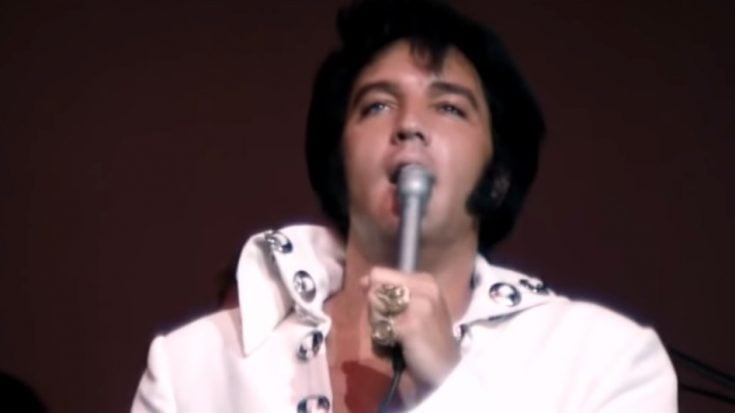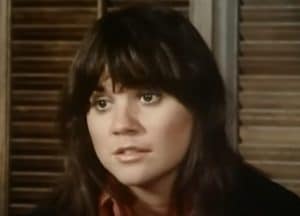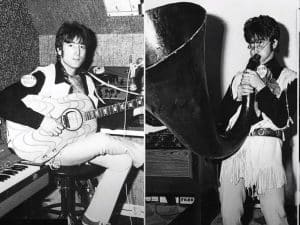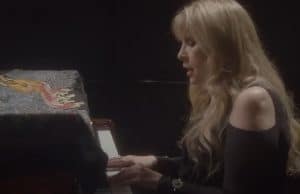Most Fans Says Elvis Presley Flopped In The 70s – These Songs Says Otherwise

Elvis Presley performing Love Me Tender live, 1970 - Tania Vasileva / Youtube
Elvis Presley’s impact on music is undeniable, and while some believe his creative flame dimmed in the ’70s, a closer look reveals a treasure trove of songs that defy any notion of decline. Contrary to popular belief, Presley continued to deliver exceptional tunes in the ’70s, showcasing his versatility and enduring passion for music.
The narrative often suggests that after his powerful comeback in 1968 and the iconic 1969 Memphis sessions, Presley’s musical brilliance waned. However, the subsequent decade holds hidden gems that refute this claim, proving that the King’s artistic flame burned brightly until his last days in 1977.
The Myth of a Downfall
1. “Kentucky Rain” (1970)
“Kentucky Rain” emerges from the iconic 1969 Memphis sessions, resonating with soulful melodies. Recorded in 1969 but released in 1970, it stands as a testament to Presley’s emotional depth and remains a highlight from the acclaimed From Elvis in Memphis album.
2. “Mama Liked the Roses” (1970)
This heartfelt ballad, also stemming from the early 1969 Memphis sessions, found its place as the B-side to “The Wonder of You” in 1970. While leaning towards the sentimental side, Presley’s genuine performance, coupled with a spoken interlude, adds a layer of authenticity.
3. “Patch It Up” (1970)
Co-written by Eddie Rabbitt, “Patch It Up” captures the horn-spiked rock energy reminiscent of Presley’s stellar 1969 Memphis sessions. The track exudes a lively spirit and showcases the continuity of his musical prowess into the ’70s.
4. “Polk Salad Annie” (1970)
Presley’s rendition of Tony Joe White’s “Polk Salad Annie” in the early ’70s introduces a bluesy and swampy groove. This live favorite, recorded in February 1970, emphasizes the King’s ability to infuse his distinctive style into diverse musical genres.
5. “The Wonder of You” (1970)
Recorded live during one of Presley’s early ’70s concerts, “The Wonder of You” manifests as a showstopper. Penned by Ray Peterson, this track not only reached the Top 10 in the U.S. but also secured the top spot on the U.K. chart, underscoring its global appeal.
6. “You Don’t Have to Say You Love Me” (1970)
Presley’s rendition of Dusty Springfield’s 1966 hit exudes passion and vocal prowess. Recorded during the June 1970 sessions, this track showcases Presley’s ability to breathe new life into existing classics, earning its place among the highlights of the early ’70s.
7. “It’s Only Love” (1971)
During the era of the genre-jumping album “Elvis Now,” “It’s Only Love” stands out with its soulful horns and piercing guitar stabs. Recorded around the same time as his second Christmas LP, this track reveals Presley’s ability to navigate diverse musical landscapes.
8. “I Really Don’t Want to Know” (1971)
A standout from the concept album “Elvis Country (I’m 10,000 Years Old),” this single capped off Side One with its captivating narrative. Released in 1971, it provides a glimpse into Presley’s continued exploration of country music themes.
9. “Always on My Mind” (1972)
“Always on My Mind” holds a poignant place in Presley’s discography, recorded just weeks after his separation from Priscilla. His sincerity shines through, dispelling notions of autopilot during his last decade and reaffirming his emotional connection to the music.
10. “An American Trilogy” (1972)
An artistic fusion of “Dixie,” “All My Trials,” and “The Battle Hymn of the Republic,” “An American Trilogy” originated from the mind of country singer Mickey Newbury. Presley’s rendition turned it into a concert staple, exemplifying his ability to weave historical narratives into musical performances.
Hits Keep Coming
11. “Burning Love” (1972)
“Burning Love” marks Presley’s last Top 10 hit and remains one of his best songs from the ’70s. Despite the shift in his stage presence with jumpsuits and kung-fu kicks, the vocal performance and the band’s prowess capture the essence of prime Elvis.
12. “It’s a Matter of Time” (1972)
Released as the flip side to “Burning Love,” “It’s a Matter of Time” showcases Presley’s versatility. Making its mark on both easy-listening and country charts, the song emphasizes his ability to seamlessly transition between contrasting musical styles.
13. “Until It’s Time for You to Go” (1972)
Buffy Sainte-Marie’s “Until It’s Time for You to Go” found a place in Presley’s repertoire, reaching No. 40 in 1972. The track stands out as one of his best ballads during a period filled with emotional and reflective musical offerings.
14. “Raised on Rock” (1973)
Capturing the essence of Stax studios in Memphis, “Raised on Rock” reflects Presley’s soulful exploration into R&B influences. Released in 1973 after the success of “Aloha From Hawaii Via Satellite,” the track solidifies his continued experimentation with diverse musical elements.
15. “Help Me” (1974)
One of the Stax recordings from 1973, “Help Me” harks back to familiar gospel territory. Enhanced by the contributions of Nashville’s top studio musicians, the mid-tempo country song reflects Presley’s commitment to maintaining musical authenticity.
16. “If You Talk in Your Sleep” (1974)
Acknowledging the potential bloating of his music, Presley sought to return to basics in 1973. “If You Talk in Your Sleep” from the Stax recordings resonates as a funky number, showcasing his determination to infuse freshness into his musical approach.
17. “It’s Midnight” (1974)
Recorded during the same Stax sessions, “It’s Midnight” starts as a ballad before escalating into a powerful performance. The song exemplifies Presley’s ability to navigate different musical dynamics, providing a compelling listening experience.
18. “Promised Land” (1974)
Presley’s cover of Chuck Berry’s “Promised Land” became a beacon of creativity in 1974. Recorded during his time at Stax’s recording studios in Memphis, the track underscores Presley’s continued relevance in delivering energetic and resonant musical interpretations.
19. “And I Love You So” (1975)
Despite the challenges of 1975, Presley’s cover of Don McLean’s “And I Love You So” stands out as a rare highlight. The track, infused with emotional depth, secured its place in his setlist until the end, showcasing his enduring affinity for poignant ballads.
20. “My Boy” (1975)
Released as one of the last songs from the 1973 Stax sessions during Presley’s lifetime, “My Boy” delves into themes of relationship troubles. The track’s emotional resonance is palpable, reflecting Presley’s commitment to conveying authenticity in his music.
The Final Flourish
21. “Hurt” (1976)
“Hurt,” written and first recorded in 1954, became a concert favorite for Presley during his final years. The studio version from 1976 highlights Presley’s vocal prowess, particularly in its demanding sustained note during the climax.
22. “Moody Blue” (1976)
The title track of Presley’s final album, “Moody Blue,” provides a brief yet impactful sign of life. Despite the album’s spottiness, this track, reaching No. 1 on the country chart, stands out with a killer chorus and Presley’s effortlessly graceful delivery.
23. “My Way” (1977)
Frank Sinatra’s “My Way” became an iconic anthem, and Presley’s rendition recorded shortly before his passing in 1977 adds a poignant layer. Released weeks after his death, the single reached No. 22, leaving a lasting musical legacy.
24. “Unchained Melody” (1977)
Presley’s live version of “Unchained Melody,” recorded months before his death, strips down the song’s arrangement. Included in the half-live album “Moody Blue,” the performance builds to a grand finale, showcasing Presley’s ability to captivate audiences even in his final months.
25. “Way Down” (1977)
The song “Way Down” was on its way down the Top 40 when Presley passed away in 1977. Recorded almost a year before at Graceland, the track climbed to No. 18 after devastated fans sought solace in Presley’s music. It stands as a testament to his enduring popularity.











